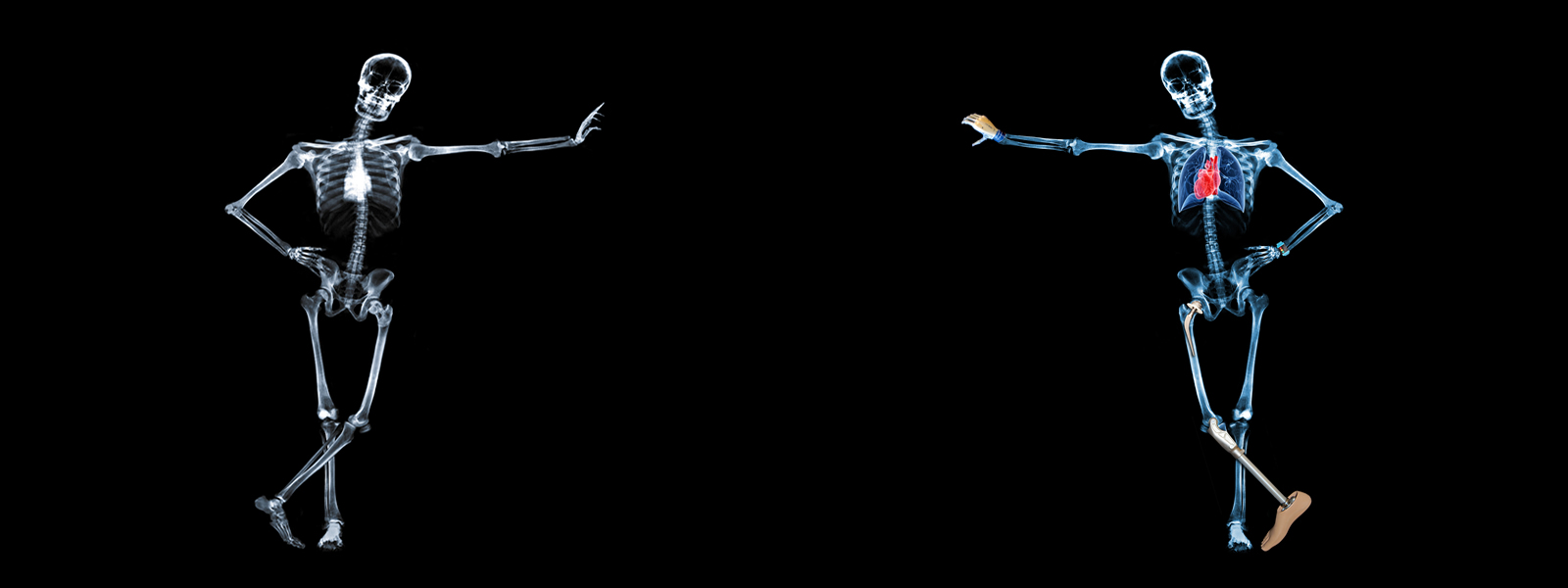Engineering can be described as the branch of science and technology concerned with the design, building and use of engines, machines, and structures.
Biomedical engineering is the application of engineering knowledge and skills to human biology, healthcare and medicine.
At the University of Strathclyde our goal is to transform and improve future healthcare through innovations and advances in biomedical engineering.
About us
We're an internationally recognised centre of excellence for education and research in biomedical engineering, with particular emphasis on clinically-related research.
The department incorporates the National Centre for Prosthetics and Orthotics which is one of only two institutions in the UK offering undergraduate and postgraduate education in Prosthetics and Orthotics.Find out more about us.
What do biomedical engineers do?
The world of biomedical engineering is dynamic, varied and includes areas such as:
- Rehabilitation engineering – design and development of therapeutic and rehabilitative devices, including prosthetics, orthoses and assistive technologies
- Prosthetic devices & artificial organs – design and development of replacement and assistive devices for replacement and improvement of bodily functions
- Clinical/surgical engineering - design and development of devices, systems and procedures to improve the outcome of medical intervention such as surgery
- Biomechanics – application of mechanical principles to cells, tissues, organs and bodies
- Biomaterials – design and assessment of materials that can be implanted
- Tissue engineering & regenerative medicine – replacing or regenerating biological tissue to restore physiological and mechanical function
- Physiological modelling – development of numerical simulations of physiologic systems in the human body
- Biosensors, instrumentation and analysis – development of medical devices to record and analyse physiological signals
Studying biomedical engineering
Biomedical engineering is a broad area of study and includes many elements of other subjects such as electronic & electrical engineering, mechanical engineering, physics, maths and biology.
Students will gain broad training in modern biomedical engineering and learn about the complexities of human anatomy and physiology.
Find out how you can study with us.
Career opportunities in biomedical engineering
The UK medical technology sector has rapidly grown over the last 4 years, with the combined turnover of UK medical technology companies increasing by 50% between 2009 and 2012 (https://www.gov.uk/government/publications/medical-technology-in-the-uk-investment-opportunities).
Biomedical engineering is expected to be the fastest-growing job market in the United States during the next seven years, according to the U.S. Bureau of Labor Statistics.
Potential types of employers that biomedical engineers could work for include:
- Industry research & development
- Research & development maintenance and diagnosis in the healthcare services
- Medical device regulations
- Medical device sales
- Hospital trusts
- Medical equipment manufacturers
- Rehabilitation or health charities
